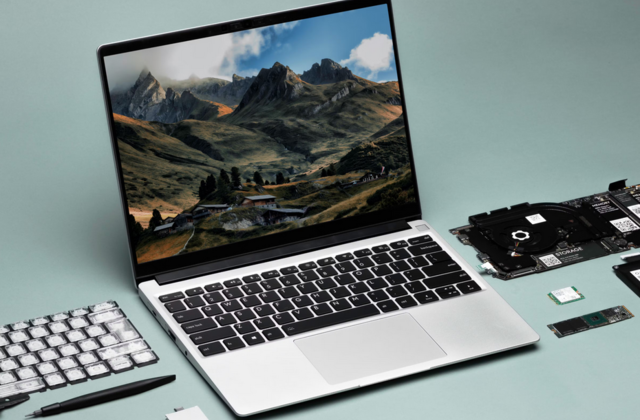What is it? Electrolux AB is a multinational home appliance manufacturer based in Sweden. It has recently launched a subscription-based home appliance-as-a-service pilot in Sweden and China, enabling customers to pay for the usage of its various appliances rather than owning them (Electrolux, 2019). For example, in Sweden, the pilot included Electrolux’s Pure i9 robotic vacuum. Meanwhile, in China, its Love+ pilot also included an air purifier (Electrolux, 2019). The subscription also includes an appliance usage tracking app and other supporting maintenance services. Electrolux seeks to encourage the reuse of resources, efficient energy usage and support product lifetime extension through this pilot.
Why is this important? The home appliance market is projected to increase by 3.2% every year (Statistica, 2020) with home appliances among the sectors with the highest environmental impact (Tukker et al., 2016). Additionally, there is an urgent need to upgrade old, energy-inefficient appliances. On average, one-third of appliances are over a decade old (Hischier et al., 2020). Replacing these old appliances with more energy-efficient alternative can contribute significantly to consumer-generated CO2 savings (Allwood et al., 2011).
Main resource strategy: Slowing the loop by selling products with higher levels of durability with supporting maintenance and repair services. Narrowing the loop by encouraging more sustainable consumption behaviour from consumers through its appliance usage tracking app.
Other resource strategies: Closing the loop by putting refurbished appliances back to use
Business model aspects:
- Value Proposition: This pilot aims to offer high-quality and energy-efficient home appliances to consumers. By providing home appliances-as-a service such as vacuum cleaners, customers can have access to appliances (e.g., through pay-per-use in Sweden, or subscription in China), rather than buying them. This has the potential to save cost and encourage sustainable behaviour.
- Value Creation & Delivery: Customers get select Electrolux home appliances on a pay-per-use basis. All services and maintenance are included in the fee. The appliances can also be controlled and monitored via an app (Electrolux 2019).
- Value Capture: The business model is based on pay-per-use. The cost of appliance production is paid back through an accumulation of usages over a longer period.
Business model experimentation practices: The appliance-as-a-service pilot was launched in both Sweden and China in 2019. In China, Electrolux launched the home appliance-as-a-service pilot via its Love+ startup. This is aimed at people who wish to take care of their elderly parents remotely via the Love+ app. Products are paid for on a monthly subscription basis and are delivered directly to the parent’s home. The family can wirelessly schedule chores and monitor appliance usage. This initial launch includes Electrolux’s vacuum and air-purifier with more products planned in the future (Electrolux, 2019).
Sustainability outcomes: yet to be assessed
Sources:
Allwood, J.M., Ashby, M.F., Gutowski, T.G. and Worrell, E., 2011. Material efficiency: A white paper. Resources, Conservation and Recycling, 55(3), pp.362–381. https://doi.org/10.1016/j.resconrec.2010.11.002
Electrolux (2019). Vacuum-as-a-service: Electrolux trials new subscription-based business models. Accessed 28 November 2020 at: https://www.electroluxgroup.com/en/vacuum-as-a-service-electrolux-trials-new-subscription-based-business-models-29880/
Electrolux (2020). Electrolux Sustainability Report. Accessed 28 November 2020 at: https://www.electroluxgroup.com/sustainabilityreports/2019/files/2019/PDF/Electrolux_Sustainability_Report_2019_final.pdf
Hischier et al. (2020). Environmental impacts of household appliances in Europe and scenarios for their impact reduction. Journal of Cleaner Production, 267, 121952. https://doi.org/10.1016/j.jclepro.2020.121952
Statistia (2020). Household Appliances Europe. Accessed 28 November 2020 at: https://www.statista.com/outlook/16000000/102/household-appliances/europe#market-arpu
Tukker, A., Bulavskaya, T., Giljum, S., de Koning, A., Lutter, S., Simas, M., Stadler, K. and Wood, R., 2016. Environmental and resource footprints in a global context: Europe’s structural deficit in resource endowments. Global Environmental Change, 40, pp.171-181. https://doi.org/10.1016/j.gloenvcha.2016.07.002
***
About project Circular X
Project Circular X is about ‘Experimentation with Circular Service Business Models’. It is an ambitious research project funded by the European Research Council (ERC) which supports top researchers from anywhere in the world. Project CIRCULAR X runs from 2020-2025. The project is led by Principal Investigator (PI) Prof Dr Nancy Bocken, who is joined by a multidisciplinary team of researchers at Maastricht Sustainability Institute (MSI), Maastricht School of Business and Economics, Maastricht University. The project cooperates with businesses who want to innovate towards the circular economy.
Project Circular X addresses a new and urgent issue: experimentation with circular service business models (CSBMs). Examples of such new business models include companies shifting from selling products to selling services and introducing lifelong warrantees to extend product lifetimes. However, CSBMs are far from mainstream and research focused on experimentation is little understood. The research aims to conduct interdisciplinary research with 4 objectives:
- Advancing understanding of CSBMs; their emergence and impacts
- Advancing knowledge on CSBM experimentation
- Developing CSBM experimentation tools
- Designing and deploying CSBM experimentation labs
Funding source
This project has received funding from the European Research Council (ERC) under the European Union’s Horizon 2020 research and innovation programme, grant agreement No. 850159.
Using this information
When you cite this publication, please use the following source:
Circular X. (2020) Case study: Electrolux - Home appliance-as-a-service pilot. Accessed from www.circularx.eu



